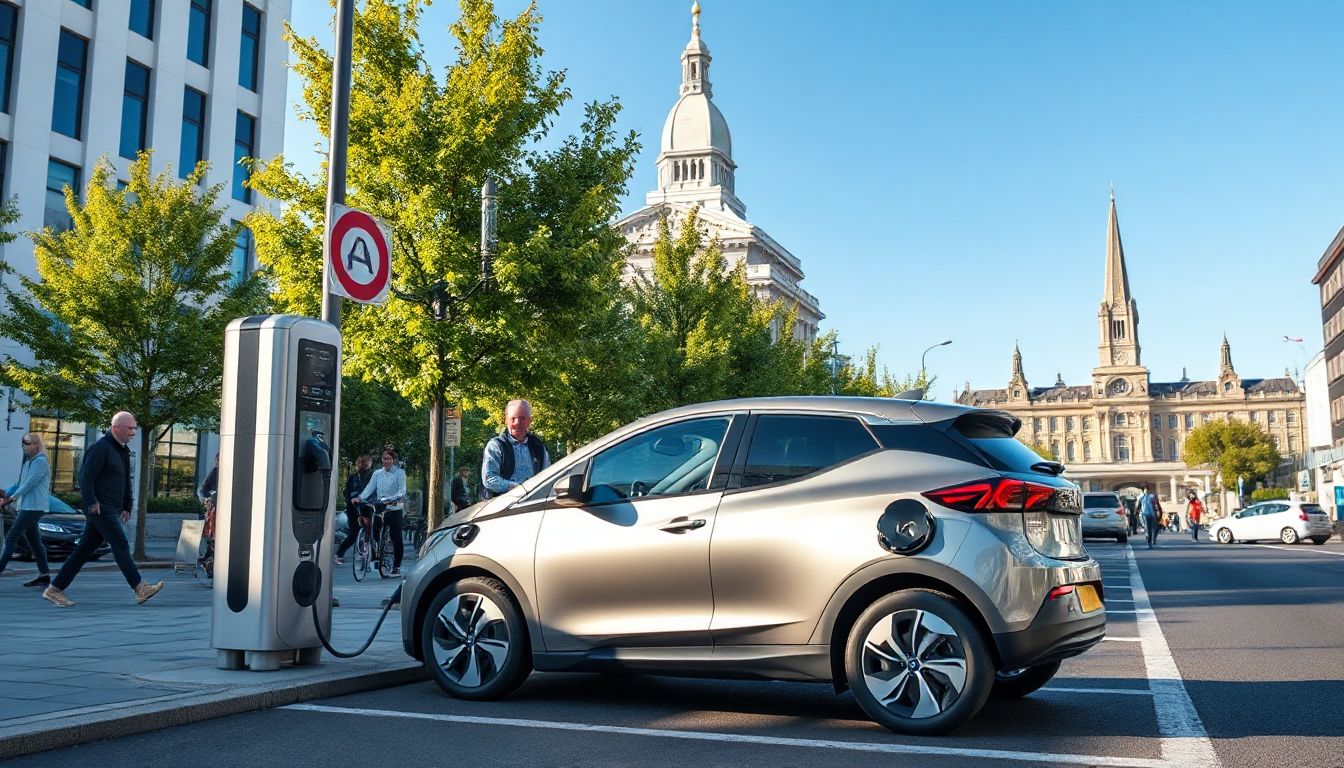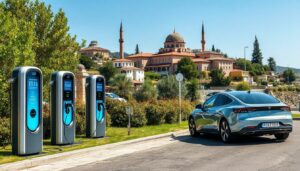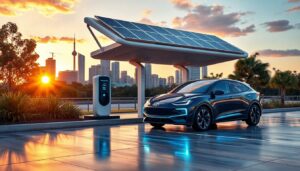Introduction
The world is shifting toward cleaner, greener transport. Electric vehicles (EVs) are taking center stage because they help cut pollution and reduce oil dependence. The UK is pushing hard to become a leader in this change. By 2050, the government aims for net-zero emissions, meaning no more harmful gases from cars. Understanding the UK’s EV market is crucial for everyone—whether you’re a buyer, investor, or policymaker. It shows where the industry is headed and the best ways to get involved.
The Current State of the UK Electric Vehicle Market
Market Size and Growth Trends
The UK EV market is booming. In 2022, EV sales hit a record high, making up about 16% of all new car sales. This is a huge jump from just a few years before. Experts expect EV sales to grow even faster over the next five years. More people are buying electric cars because they’re now more affordable and easier to charge. Major factors driving this growth include government incentives and rising awareness about climate change.
Government Policies and Incentives
The UK government plays a big role in pushing EV adoption. It offers grants like the Plug-in Car Grant, which gives buyers a discount on new electric vehicles. Zero-emission zones in cities are also making petrol and diesel cars less attractive, encouraging EV use. Looking ahead, government plans include banning the sale of new petrol and diesel cars by 2030. These policies will shape the future of transportation across the country.
Key Market Players and Models
Many top car brands are competing in the UK EV scene. Nissan’s Leaf has been a popular choice for years, while Tesla’s Model 3 attracts those who want high speed and range. Volkswagen is also expanding with models like ID.3 and ID.4. New brands and startups are entering the market, pushing innovation and offering more choices. As a result, consumers have access to a wide range of electric vehicles suited for different needs and budgets.
Infrastructure Development and Challenges
Charging Network Expansion
The success of EVs depends heavily on charging infrastructure. The UK has made good progress, with thousands of charging stations across the country. These include fast chargers that refill most batteries in around 30 minutes and home chargers for daily use. The government plans to double the number of public charging points by 2025. This makes charging more convenient and less of a concern for drivers.
Grid Capacity and Sustainability
More EVs mean a bigger load on the national power grid. Already, the demand for electricity is rising. To meet this, the UK needs to upgrade its energy grid, tapping into renewable sources like wind and solar. Innovations such as wireless charging and vehicle-to-grid systems might soon allow cars to help stabilize the grid. These steps are vital to making EVs truly green and sustainable.
Barriers to Adoption
Despite progress, some hurdles remain. Range anxiety—that fear of running out of juice—still worries many potential buyers. Though newer EVs can go over 200 miles on a single charge, perceptions are slower to change. Charging times also need improvement, especially in busy city centers. Plus, misconceptions about EVs persist, which can slow acceptance.
Consumer Perspectives and Adoption Drivers
Public Attitudes and Perceptions
Survey after survey shows that more UK residents are open to switching to EVs. Many see electric cars as cheaper to run and better for the environment. But concerns about battery life and charging access still hold some back. Those who have already bought EVs tend to be very satisfied, often recommending them to friends and family.
Cost of Ownership and Financial Incentives
While EVs can cost more upfront, they usually save money over time. Lower fuel costs and fewer repairs make them cheaper to own. Government grants like the Plug-in Car Grant reduce upfront prices, making EVs more affordable. To grab the most savings, buyers should also explore tax breaks and incentives offered by local authorities.
Environmental and Social Benefits
Switching to electric cars cuts greenhouse gases significantly. It helps cities breathe cleaner air and fights climate change. Some companies are even electrifying their fleets. This not only cuts costs but boosts their eco-friendly image too. As consumers and businesses go greener, the EV market gets a big boost.
Future Outlook and Industry Trends
Technological Innovations
Battery technology keeps improving. New batteries last longer, charge faster, and are cheaper. Some EVs already go beyond 300 miles on a single charge. Self-driving features are also coming, making driving safer and more comfortable. Integration with renewable energy sources will make charging cleaner and more sustainable.
Market Projections and Opportunities
EVs could make up nearly 50% of all new cars sold in the UK by 2030. This creates many chances for new business models. Battery leasing, where drivers pay monthly for batteries, is gaining popularity. EV subscription services let consumers switch cars easily. For investors, the sector offers real growth potential, especially as policies continue to favor electric mobility.
Challenges and Risks
Supply chain issues—like shortages of semiconductors or raw materials—could slow growth. Regulatory changes might also shake things up or affect prices. The second-hand EV market is still developing but will grow fast as more people buy used electric cars. Managing these risks is key to sustaining industry momentum.
Conclusion
The UK EV market is on the rise, driven by technology, policies, and changing attitudes. Infrastructure improvements and innovative tech are making electric cars more practical and attractive. As government targets become stricter, the shift to electric transportation will speed up. For consumers, this means more choices and savings; for investors, a promising future. Policymakers should continue pushing for better charging networks and clearer regulations. Everyone has a part to play in moving toward a cleaner, greener transport future. The UK’s journey to an electric-only car fleet is well underway—and it’s just getting started.




